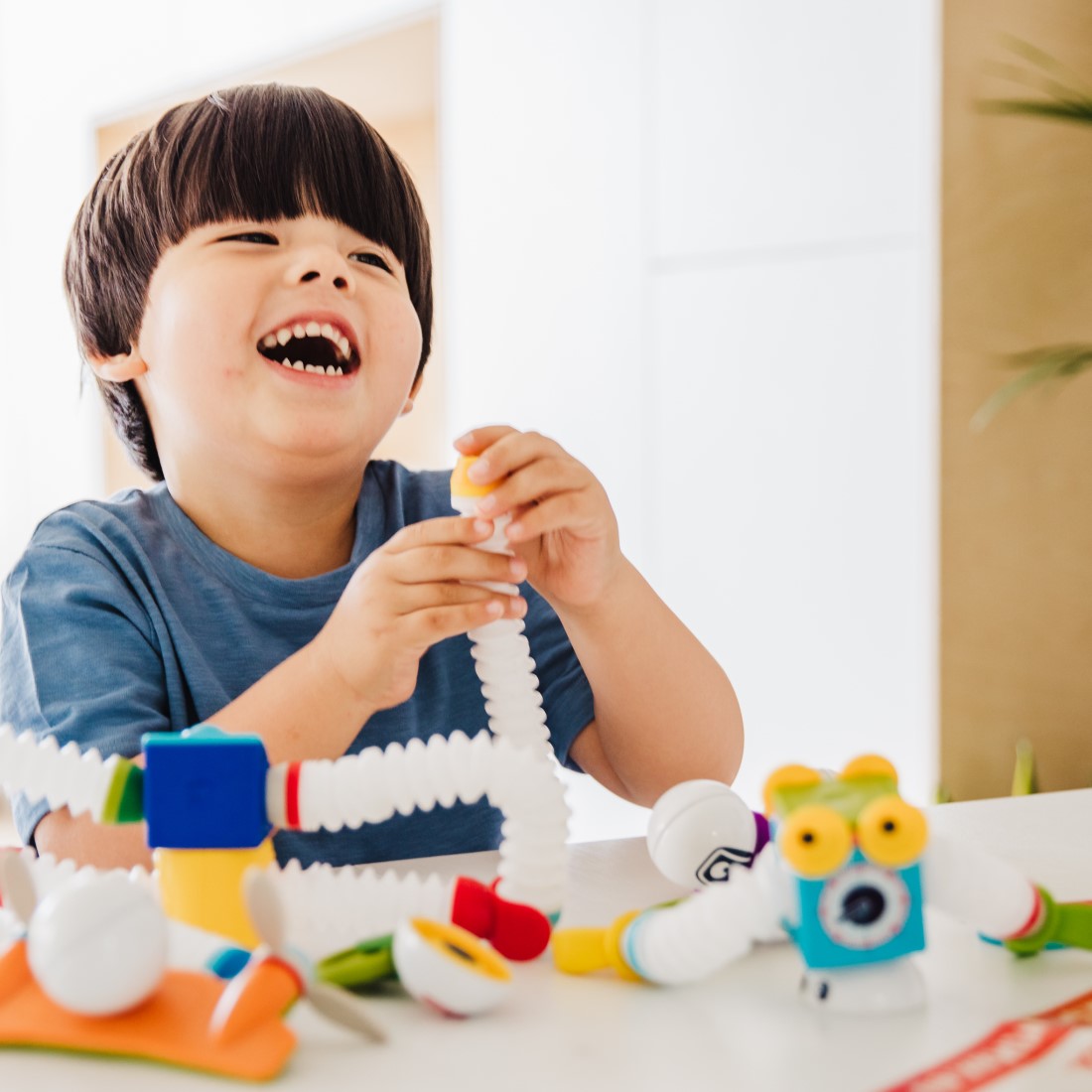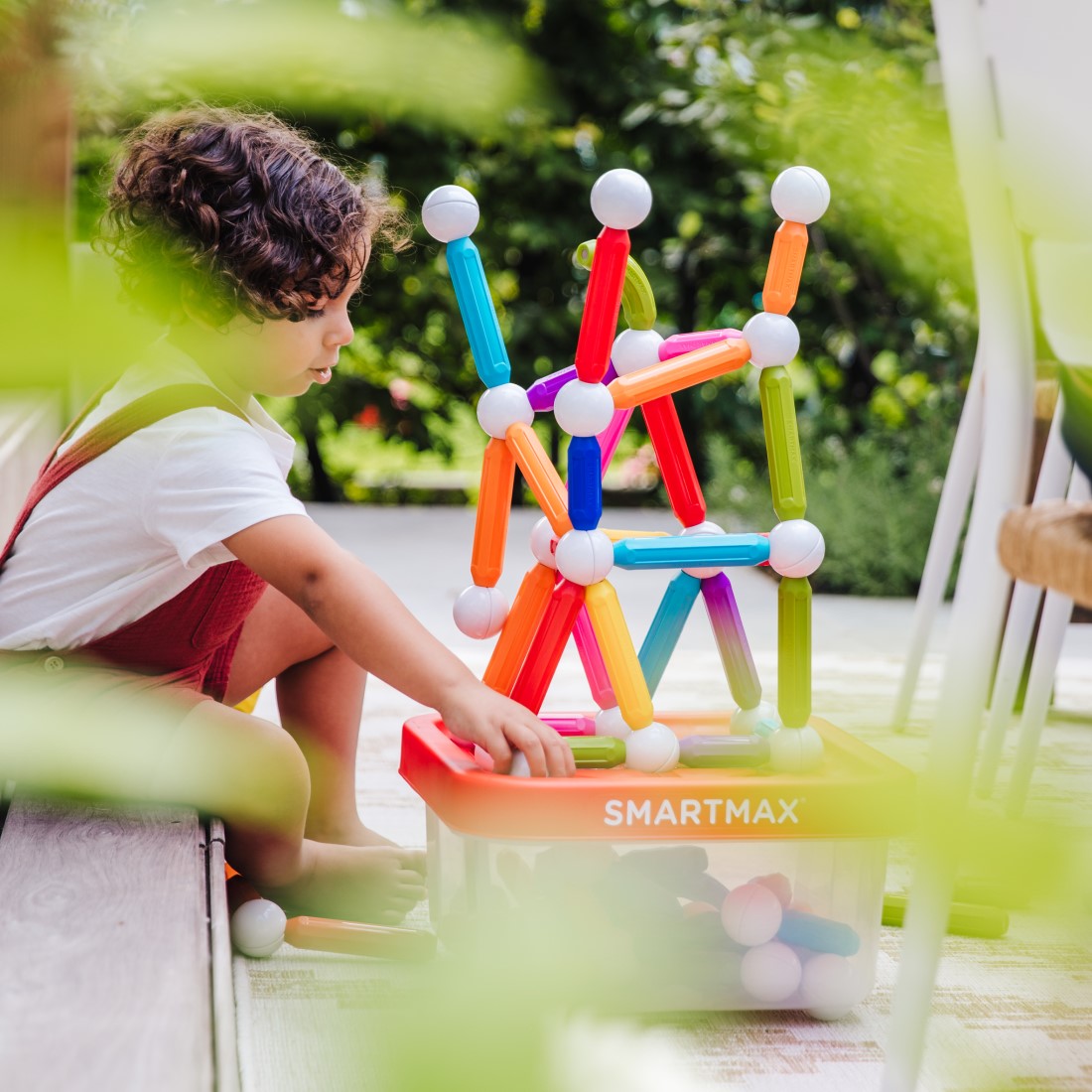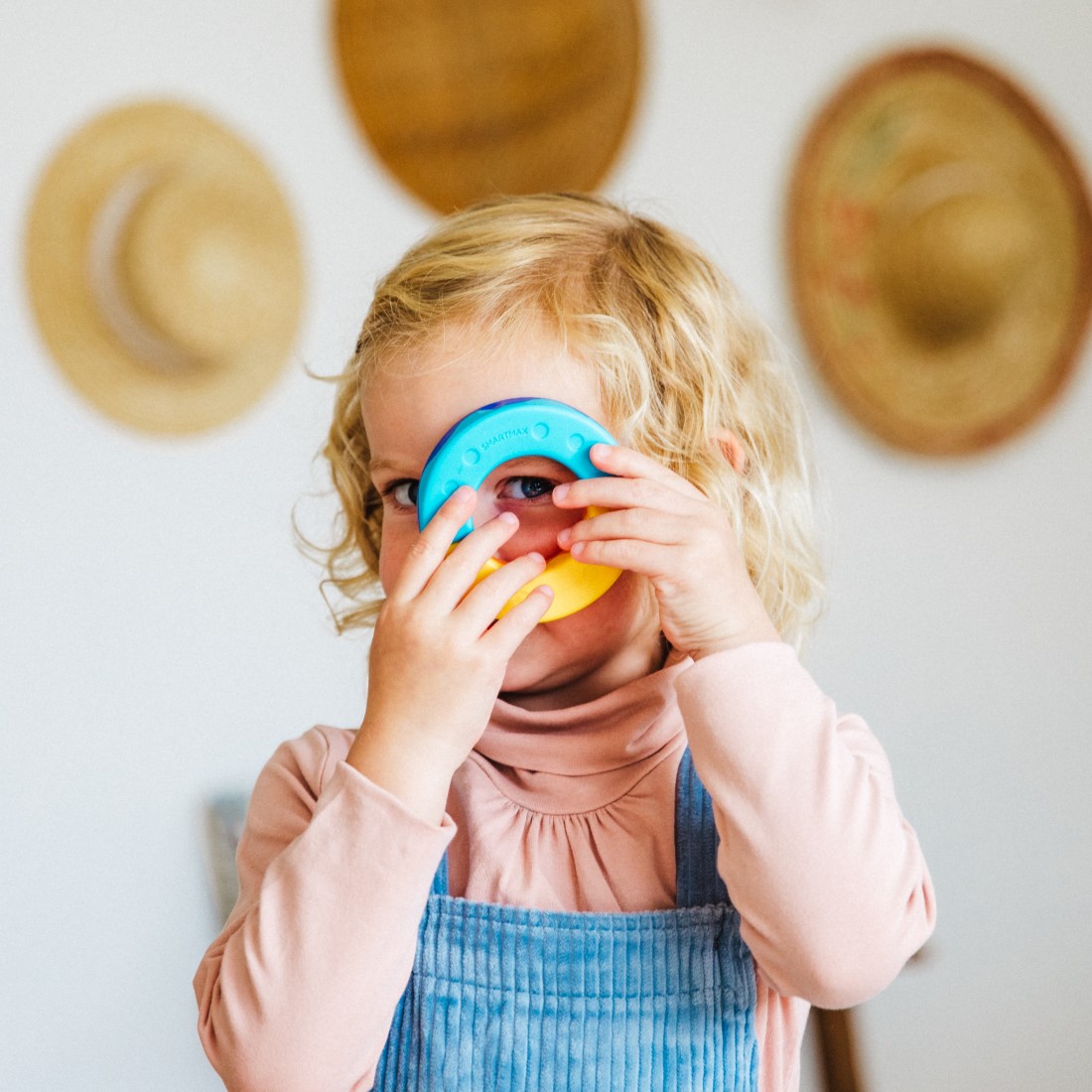What is imaginative play?
Imaginative play or make-believe is a form of playing where kids are roleplaying, imitating or re-enacting situations they’ve experienced or that they have seen somewhere. By replaying these situations, children learn how to make sense of the curious world around them. It gives them the chance to identify with the adult world and learn how to understand it. And while doing so, they pick up social skills, adaptability, coping mechanisms, they sharpen their creativity and develop language and other essential skills.


Deal with the world around them
The more your mini-me makes-believe, the more it sharpens their creativity. This play-form provides a safe space for kids to imitate situations and scenarios they would otherwise not be able to experience. E.g., your smallsters would never conduct a train at the age of 5 but with imaginative play, your little ones can drop all their friends and teddys off at their designations. Thanks to this play-form kids, can be everything they want or do everything they want. By doing so, they are also practicing valuable social skills.
Practicing social skills
By roleplaying and play-pretend, your little one also learns about other perspectives. They are able to try out various situations from different points of view. For example, in one game, they can pretend to be a parent having to order food for the family in a restaurant. In another game, they can be the waiter that brings the food. In yet another game, they might be the child that does not like the food on the menu. This helps explore the various relationships between people and how they see the world differently and how they feel, interact, or cooperate with others. By learning so, children become more willing to share, play together, cooperate, and show empathy.
Developing emotionally
Building confidence is one of the things why you should really stimulate your toddler to make-believe. Children have little control over their own lives, so imagining themselves as a superhero or animal doctor works empowering, giving them more confidence in their abilities. This game form also functions as a way to let go of fears and worries and air confusion. They can take control in their imaginative situation, making them feel better and be weaponed for future similar circumstances. It gives them a sense of independence, as they can create their own set of rules and explore new ideas or story lines.
Intellectual progression
When roleplaying or playing make-believe, children talk and communicate a lot. They describe what they are doing, tell stories, and explain others what to do. This benefits language development: they are practicing their vocabulary, learn how to build sentences and how to communicate with others. Next to language, toddlers learn how to think symbolically and abstract. This will help them later in life to understand maths and science better. Another thing children learn through imaginative play, is problem solving. They learn how to figure things out themselves and how to negotiate.

How to stimulate make-believe play
Imaginative play can be stimulated in several ways. Most important thing is to give them enough time and space to play freely. You can add materials to the experience. You can do this with things you have at the house, like cardboard boxes, plastic containers, pillows, sheets, … Or you can give them other multi-sensory items, like magnetic toys, water toys, wooden toys, … or give them some props for dress-up parties. Magnetic toys are also perfect: Roboflex for example combines the sensory experience of magnets with various flexible materials with which your little one can create the most creative robots or creatures with and have make-believe adventures with.
What’s the funniest thing you’ve seen your mini-me re-enact? Let us know via @smartmaxsocial!
More information & sources:
Discovery Building Sets (2022). 6 Benefits of Imaginative Play. Discovery Building Sets. https://discoverybuildingsets.com/blogs/dbs-articles/benefits-of-imaginative-play
Tracy Ellis (2022). The benefits of imaginative play. Therapy Focus. https://therapyfocus.org.au/on-the-blog/the-benefits-of-imaginative-play/
Reader’s Digest Editors (1 April 2022). 5 Benefits of encouraging your child’s imagination. Reader’s Digest. https://www.rd.com/article/encourage-your-childs-imagination/
Josh Bobbermen (11 September 2019). The importance of imaginative play. Teamkids.com.au. https://teamkids.com.au/the-importance-of-imaginative-play/

